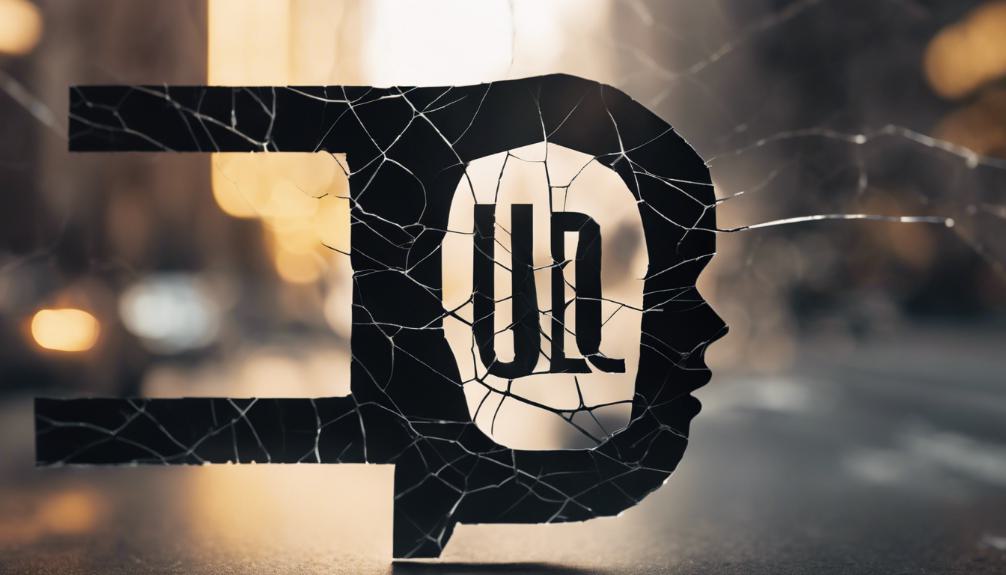Uber's Toxic Culture Endangers Women – Lawsuit Claims
The recent lawsuit against Uber, alleging a toxic culture that endangers women, has cast a long shadow over the company's operations and its claims of prioritizing passenger safety. Amidst growing concerns, this legal challenge not only questions the efficacy of Uber's safety measures but also highlights a broader issue of corporate accountability in the face of serious allegations. As the case unfolds, it beckons a closer examination of the discrepancies between Uber's public assurances and the realities experienced by its users, especially women. This pivotal moment could very well redefine safety standards in the ride-sharing industry, leaving us to ponder what changes may lie ahead for Uber and its passengers.
Key Takeaways
- Uber's inadequate driver vetting increases sexual assault risks for passengers.
- The company failed to use Safe Rides Fee for promised safety improvements.
- Reports reveal thousands of sexual assaults by Uber drivers in recent years.
- Victims are joining a class-action lawsuit against Uber for safety violations.
Toxic Work Environment

The toxic work environment within Uber, particularly its male-dominated culture, has raised serious concerns about the safety and well-being of its female employees and passengers. Reports indicate a systemic failure to address issues of gender discrimination and harassment, creating an atmosphere that not only demeans women but also potentially places them at risk. This environment, underscored by a lack of stringent hiring and vetting processes, has cast a shadow over the company's commitment to creating a secure and inclusive workplace. For a service that prides itself on convenience and accessibility, the ongoing neglect towards fostering a respectful and safe space for women fundamentally undermines these values. It is imperative for Uber to take decisive action in rectifying these issues to safeguard the dignity and security of all individuals within its community.
Passenger Safety Violations

Building on concerns related to the toxic work environment, attention must now be focused on the specific passenger safety violations that have further tarnished Uber's reputation. Allegations pointed at Uber's failure to safeguard its passengers, especially women, from harm during rides highlight a grave oversight. The reported 5,981 sexual assault incidents within a two-year span, as disclosed in Uber's first U.S. Safety Report, and the subsequent increase in severe sexual assault reports, underscore a persistent risk to passenger safety. This situation raises questions about the effectiveness of Uber's safety protocols and the integrity of its commitment to passenger welfare. For those dedicated to serving others, these revelations emphasize the critical need for stringent safety measures and a culture of accountability within ride-sharing services to protect all passengers.
Driver Vetting Concerns

Concerns over Uber's driver vetting processes highlight significant gaps in ensuring passenger safety and trust. The absence of fingerprint-based background checks and continuous monitoring of drivers raises serious questions about the company's commitment to user safety. This lax approach to vetting can potentially expose passengers, particularly women, to unnecessary risks, undermining the trust that should be foundational in the provider-user relationship. A more rigorous and transparent vetting process, along with the implementation of continuous monitoring, would serve not only to enhance passenger safety but also to foster a culture of responsibility and trustworthiness. It is imperative for companies operating in the service sector, especially those providing personal transportation, to prioritize the safety and well-being of their patrons through stringent vetting practices.
Safety Measures Neglected

Despite mounting evidence and public outcry, Uber has consistently failed to implement essential safety measures to protect its passengers from harm. The ongoing neglect to enforce stringent hiring and vetting processes for drivers has directly contributed to a persistent threat of sexual assault for passengers, mostly impacting women. Additionally, the absence of crucial safety protocols, such as fingerprint-based background checks, continuous monitoring of drivers, and the lack of emergency notification systems, further exacerbates the danger. This disregard for passenger safety underscores a deeply ingrained issue within the company's culture, prioritizing profits over the well-being of its users. The failure to offer options for female passengers to select female drivers only adds to the growing concern over the safety of ridesharing services.
The Safe Rides Fee

Amid the growing safety concerns, Uber introduced a $1 Safe Rides Fee, purportedly to enhance passenger security. This initiative was presented as a proactive step towards addressing the apprehensions surrounding rider safety, particularly for women. By instituting this fee, Uber signaled its commitment to investing in measures that could potentially safeguard passengers from the risks associated with ride-sharing. The fee was applied to millions of rides, underscoring the company's acknowledgment of the critical need for enhanced security protocols. For individuals dedicated to serving others, this effort by Uber could be seen as a move towards creating a safer environment for passengers, aspiring to set a higher standard in the ride-sharing industry's approach to customer safety.
Misuse of Safety Funds

The introduction of the $1 Safe Rides Fee by Uber, initially marketed as a step towards enhancing passenger security, has come under scrutiny for the alleged misappropriation of these funds. Intended to bolster safety measures, the fee generated significant revenue, purportedly without a proportional investment in the promised enhancements. This discrepancy raises concerns about the company's commitment to safeguarding its passengers, a priority for those who value service and safety. The allegations suggest a misalignment between Uber's public safety narrative and its allocation of safety-related financial resources. For individuals and communities dedicated to fostering secure and supportive environments, this situation underscores the importance of transparency and accountability in corporate practices, especially when public well-being is at stake.
Escalating Assault Reports

Reports of sexual and physical assaults involving Uber drivers have seen an alarming increase, as evidenced by recent safety reports and legal actions against the company. This upward trend in assault reports underscores a growing concern for passenger safety, particularly for women who utilize the ride-sharing service. The data revealed in Uber's own safety reports highlight a disturbing frequency of violent incidents, ranging from sexual misconduct to physical attacks, raising critical questions about the efficacy of the company's driver vetting processes and safety measures. For those dedicated to serving others and ensuring community safety, these findings are a stark reminder of the importance of vigilant oversight and the need for thorough strategies to protect vulnerable passengers from harm.
Legal Recourse for Victims

Given the alarming rise in assault reports involving Uber drivers, victims seeking justice have several legal avenues available to them, including joining class-action lawsuits. Pursuing individual legal action, where a victim files a lawsuit against Uber, is another route. This approach allows for the specifics of an individual's case to be examined in detail, potentially leading to compensation for damages suffered. Additionally, reporting the incident to local law enforcement is essential for the immediate safety of the victim and can aid in building a legal case against the perpetrator and, possibly, the company. Engaging with a legal professional who specializes in sexual assault cases can provide guidance on the most appropriate course of action, ensuring that victims receive the support and compensation they deserve.
Joining the Class Action

Victims of Uber-related assaults now have the opportunity to seek collective justice by joining a class-action lawsuit against the company. This legal avenue aims to provide a unified front for those harmed, offering strength in numbers and a consolidated case against the ride-sharing giant. Participation in the class action is designed to be accessible, with no upfront costs for victims. Legal support is readily available, guiding individuals through the process and ensuring their experiences are heard and validated. This approach not only seeks to hold Uber accountable for its alleged failures in passenger safety but also aims to create a safer environment for future users. By coming together, victims can amplify their voices, pushing for significant changes and fostering a community of support and resilience.
Financial Implications for Uber

The financial repercussions for Uber, stemming from numerous lawsuits and fines related to safety violations, could greatly impact the company's bottom line and market reputation. In maneuvering these turbulent waters, the rideshare giant faces not only immediate fiscal challenges but also long-term hurdles in restoring public confidence. The potential outflow of funds for settlements, increased regulatory scrutiny, and the imperative need for substantial investment in safety improvements and driver vetting processes underscore the gravity of the situation. For a company that prides itself on innovation and convenience, addressing these financial implications with transparency and commitment is vital. It is an opportunity to demonstrate a sincere dedication to the safety and well-being of its users, which, if effectively managed, could pave the way for a more secure and trusted service environment.
Uber's Response to Allegations

In response to mounting allegations, Uber has initiated several measures aimed at enhancing passenger safety and improving its vetting process for drivers. Understanding the gravity of the accusations, the company has committed to creating a safer environment for its passengers, particularly women, who have felt endangered. This initiative includes revising their hiring policies to guarantee a more thorough scrutiny of potential drivers. Additionally, Uber has invested in technology designed to make rides safer, such as real-time ride tracking and direct lines to emergency services. The company acknowledges the importance of trust and safety for its users and is dedicated to rebuilding that trust by taking concrete steps to address the concerns raised. These efforts reflect Uber's dedication to serving its community responsibly and attentively.
Moving Forward: Safety First

Acknowledging the significance of the concerns raised by passengers and the public, Uber is now prioritizing safety enhancements to rebuild trust and guarantee a secure environment for all users. This dedication involves the implementation of more rigorous background checks, continuous driver monitoring, and the introduction of improved safety features within the app, such as real-time ride tracking and an emergency button. Additionally, Uber is committing to transparency regarding safety incidents and the measures taken in response. By fostering a culture of accountability and respect, Uber aims to make sure that every journey is as safe as possible for its passengers. These steps are critical in moving forward and demonstrating Uber's commitment to the safety and well-being of its community.
Frequently Asked Questions
How Does the Presence of a Toxic Male-Dominated Culture Within Uber Specifically Contribute to the Endangerment of Women, Beyond General Safety Violations?
The presence of a toxic male-dominated culture within organizations like Uber directly contributes to the endangerment of women by fostering an environment where safety concerns, particularly those affecting women, are minimized or ignored. This culture can lead to inadequate vetting and training of drivers, insufficient safety protocols, and a lack of responsive measures to assault claims. Such systemic issues magnify the risk of sexual assault and harassment, compromising the safety and well-being of female passengers and employees.
Are There Any Psychological Support Services Offered by Uber or the Legal System for Victims of Assaults That Occurred During an Uber Ride?
In addressing the provision of psychological support for victims of assaults during Uber rides, it's imperative to contemplate both the company's and the legal system's roles. For instance, following a traumatic event, a hypothetical scenario could involve Uber partnering with counseling services to offer immediate psychological support to affected passengers. Such initiatives are vital for healing, demonstrating a commitment to passenger welfare and acknowledging the profound impact of these incidents on individuals' mental health.
How Does Uber's Internal Culture and Policies Compare to Those of Its Competitors, Like Lyft, in Terms of Addressing and Preventing Gender-Based Violence and Harassment?
Comparing Uber's internal culture and policies to its competitors, such as Lyft, in addressing and preventing gender-based violence and harassment reveals significant disparities. While both companies have faced criticism and legal challenges related to safety concerns, Uber's historical issues, including reported incidents and alleged inadequate response measures, have placed it under more scrutiny. Efforts to enhance safety protocols, including driver vetting and passenger support, are pivotal in the industry's ongoing commitment to reducing gender-based violence.
What Are the Long-Term Impacts on Victims Who Have Gone Through the Process of Reporting an Assault Related to an Uber Ride, and How Does the Lawsuit Aim to Address These Impacts?
Victims steering the tumultuous waters of reporting an assault related to an Uber ride face enduring trauma and a quest for justice. The proposed class-action lawsuit seeks not only to hold Uber accountable for its alleged safety failures but also to address the long-term psychological and emotional impacts on survivors. By advocating for extensive safety reforms and compensation, the lawsuit aims to provide a beacon of hope for healing and closure.
How Does the Legal Framework Surrounding Gig Economy Companies Like Uber Affect the Company's Accountability for Sexual Assaults and the Protection Offered to Passengers and Drivers?
The legal framework surrounding gig economy companies, such as Uber, greatly impacts their accountability for sexual assaults and the protection afforded to passengers and drivers. Due to their classification of drivers as independent contractors, traditional employer liability may be circumvented, complicating recourse for victims. This framework necessitates robust internal policies and transparent safety measures to safeguard against and address sexual assaults, emphasizing the importance of corporate responsibility in the gig economy.
Conclusion
To sum up, the unfolding narrative of Uber's operational practices casts a long shadow over the ride-sharing industry, underscoring the timeless adage, 'actions speak louder than words.' Despite the company's assurances, the alleged negligence in addressing safety concerns and misconduct paints a stark contrast to its public image. This situation serves as a critical reminder of the imperative for stringent regulatory oversight and ethical accountability in safeguarding passenger welfare, thereby steering the conversation towards a future where safety unequivocally precedes profit.

This post has been generated by AI and was not reviewed by editors. This is Not legal advice. Please consult with an attorney.
